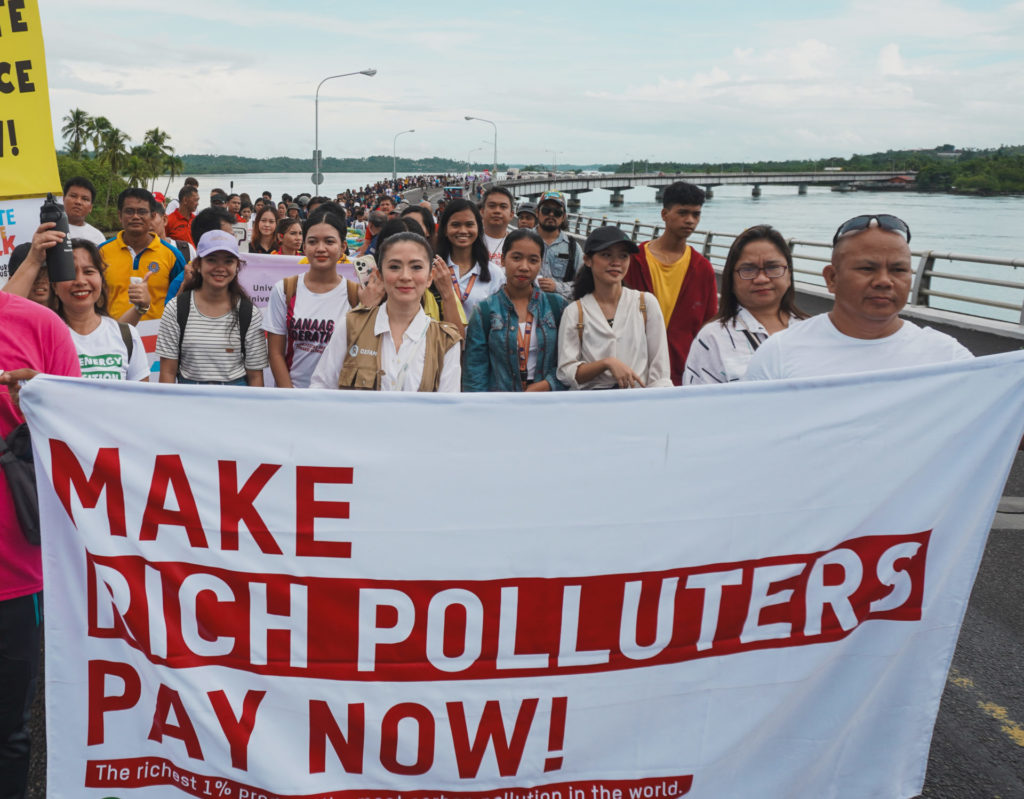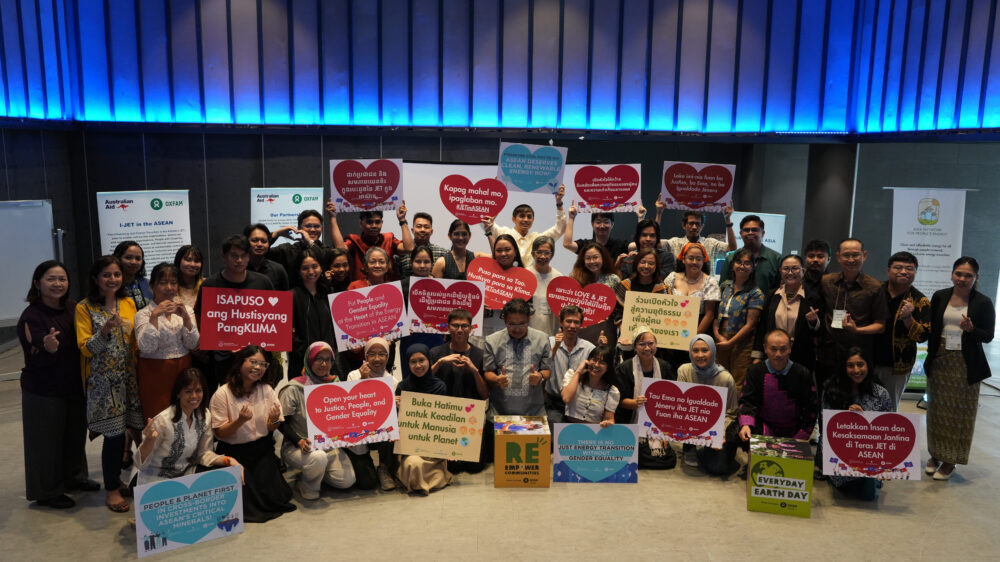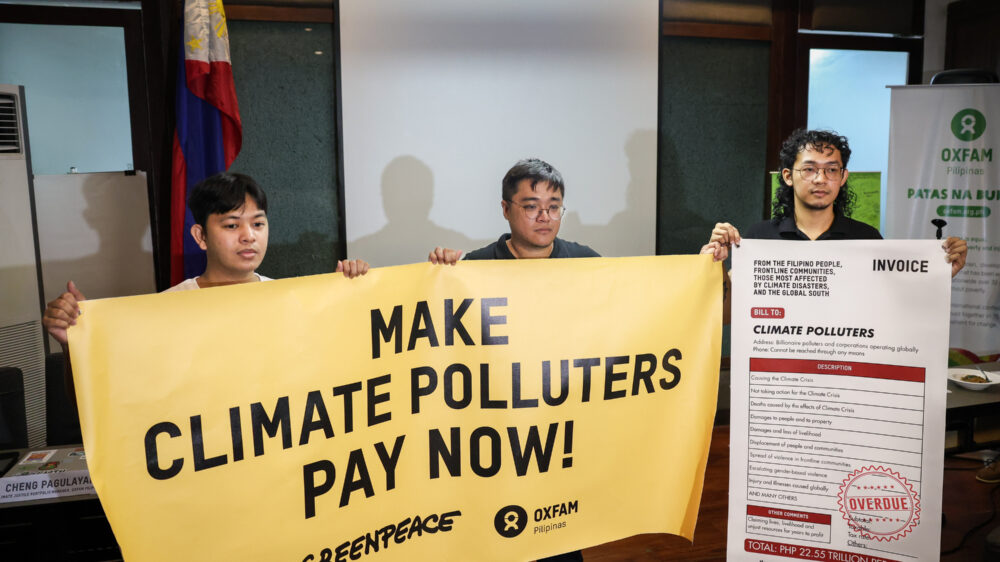
(International name Haiyan) hit the country. Participants hold a banner, calling on richest polluters to pay
and be held accountable for the climate crisis. (Photo: April Bulanadi/Oxfam Pilipinas)
As a youth climate activist from a province in the Philippines–who directly feels the impact of and sees
how people are suffering from the climate crisis, genocides, and widespread human rights violations and
inequality–participating in platforms such as the World Social Forum (WSF) 2024 will always be both overwhelming, but also very energizing.
On February 15-19, social justice and human rights advocates and activists convened in Kathmandu, Nepal under the banner of “another world is possible.”
It is so inspiring to see generations of activists and development workers gathering in one space to not
only demand an end to these crises but also to actively engage as dynamic advocates working to
influence or break the systems that perpetuate them.
A broken world with multiple crises
During the WSF People’s Assembly on Climate Justice, development workers and social leaders
highlighted the issue of how people in their countries are suffering from direct and indirect impacts of
the climate crisis and how the biggest polluters who caused these crises should be held accountable and
should pay for the reparations to help the people mitigate and adapt from the impacts.
Another pressing issue at the WSF was the genocide currently happening in Palestine. A civic leader
from Palestine spoke of peace and shared that their people are dying in thousands and people with
health conditions are not receiving adequate health care as the occupation has already bombed most, if
not all, medical facilities. Thus people with pre-existing conditions cannot get the treatment needed.
There was a loud call for a ceasefire and the liberation of Palestinians from the Israeli occupation.
This is happening on top of massive economic inequality, the rise of dictators and authoritarianism, the
decline of democracy, and the rise in global hunger. According to the United Nations, 800 million people
go to bed hungry because of ever-rising food prices.
However, as the executive director of Oxfam International highlighted in his keynote speech, all of these
are part of a poly-crisis. These multiple crises that we are going through, though seemingly different, are
intertwined and are birthed, enabled, and sustained by the same system.
The power of imagination
One of the takeaways that I brought home from the World Social Forum is the realization that our
broken world doesn’t need to remain like this– that a world without genocides, inequality, and
violations of human rights is possible.
Young people around the world are imagining and fighting for a better world. For example, in my
province, young people have fought and continue to fight to champion a clean and sustainable future.
All of us should imagine that there can be a better future–a better future for us, for our children, and for
the generations to come that will inherit the kind of world that we are creating right now.
We need to work together to dismantle the systems that enable these crises that will lead to nothing
but ecological and moral collapse, loss of dignity, and eternal suffering of our people.
And as one of the civic leaders from India said, talking about an alternative humane and just future: If
we can imagine it, we can create it.
Because the first step in creating a better future is to be able to imagine it.
Joshua Villalobos is the convenor of Negrosanon Initiative for Climate and the Environment. For
comments or discussion, you may write him at joshuaovillalobos@su.edu.ph.



